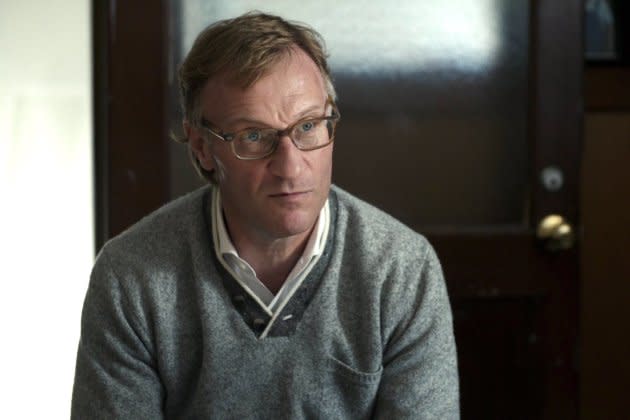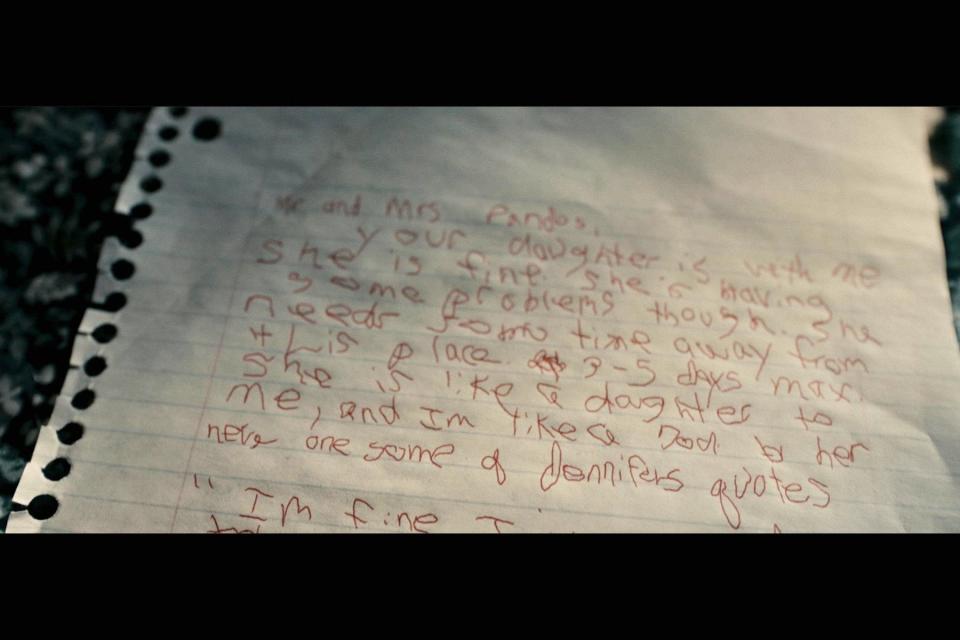He Spent a Decade Trying to Prove His Parents Killed His Teen Sister

We all have issues with our parents, be them related to love, money, neglect or other grievances and wrongdoings, real or imagined. But the story of Stephen Pandos is more extreme than most. He spent a decade trying to prove that his mom and dad were responsible for the unsolved disappearance (and, presumably, death) of his 15-year-old sister, Jennifer, back in 1987. A tall, soft-spoken Virginian, he pursues his cause with dogged determination, through investigations conducted by police and private eyes, and through a seven-year collaboration with filmmaker Cynthia Hill. The fruits of that partnership are now a four-hour HBO docuseries, Burden of Proof, that focuses on questions asked more than answered.
Some such endeavors are whodunnits; others, including the recent (and very strong) HBO production How to Create a Sex Scandal, play like briefs for the prosecution. Burden of Proof is a different sort of animal. In digging in for the long haul, Hill and her team seek to track the toll of a most painful obsession on a seemingly decent man unable to lay down his burden. By and large, often against the odds, the series succeeds. Along the winding road you might find yourself asking why Burden of Proof needs to last four hours; its digressions have digressions, and if some of these were pared away, you’d still have a solid documentary feature. But you feel the cumulative effect as the series angles toward its appropriately inconclusive conclusion. “I’m still hanging out in ambiguity,” Pandos says at one point, and he could be speaking for the viewer as well as himself. Burden of Proof is about the slow march of process, if not progress; its bombshells are muted when they land at all.
More from Rolling Stone
Sarah Jessica Parker and 'Sex and the City' Cast Celebrate 25th Anniversary
Sexual Wellness Company Founder, Ex-Exec Charged With Forced Labor Conspiracy
Pandos was away at college when Jennifer went missing, but he later suspected something wasn’t right. The note she (or someone) left behind was problematic, as was the response of her parents, Ron and Margie, who didn’t immediately go to the police. Ron, an abusive Vietnam veteran with a hair-trigger temper, ended up serving time for other crimes after the couple divorced; Margie seems chagrined and confused about the whole affair, but she’s adamant that she didn’t write the note (as Stephen and at least one investigating officer suspect) or aid her ex-husband in any criminal activity. Ron also shows up pretty early in the series, remarried and denying wrongdoing. Stephen is not convinced. He is deep down the rabbit hole, following one tunnel after another, exasperated by what he sees as his parents’ refusal to come clean.

Burden of Proof is an exceptionally handsome documentary, from the crisp editing that often bursts into staccato sequences of images, to the painstakingly thorough reenactments, shot with the kind of painterly eye usually reserved for narrative features. In a typical image, Wade Hunt Williams, the actor playing Ron Pandos, sits at a table in a pool of light amid an otherwise dark room as his wife (Kim Winter Mako) looks on with an unreadable look on her face; the sun vaguely illuminates a blurred room in the background. This is no quick-and-easy true crime doc. It’s a textured portrait of a tortured soul chasing maddeningly elusive truth.
Hill does her diligence as a reporter as well, introducing characters including a one-armed drifter who utters a line that could have come from Thomas Pynchon’s gonzo detective novel Inherent Vice: “We were more or less just associates, smoking weed.” Burden of Proof even creeps up close to something resembling resolution. But it never quite gets there, and it remains all the more haunting and real because of it. For those who have the patience the series demands – and even makes a subject of – this is an engrossing piece of work about what it means to want life to hurry up, only to have life laugh bitterly in return.
Best of Rolling Stone

